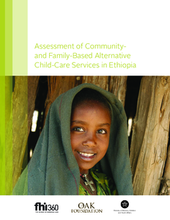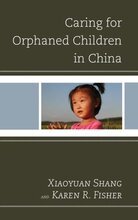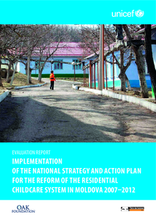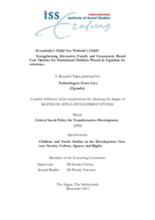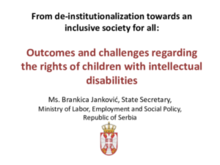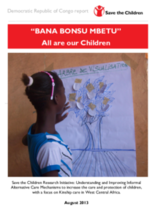Displaying 451 - 460 of 608
This Handbook aims to provide guidance for Save the Children staff, NGO partners, Community Child Protection Groups and community volunteers in Myanmar in protecting the welfare of children living with extended family members.
This paper provides overview of the US and Canada in-care system, noting certain differences and similarities between the two systems. Estimates of the number of children in care in Canada and data on children in the US foster care systems is also provided.
This assessment conducted by FHI 360, with support from Ethiopia's Ministry of Women, Youth and Children Affairs (MoWYCA) and the OAK Foundation aimed to generate evidence about formal community and family- based alternative child care services and service providing agencies in Ethiopia, with a particular focus on magnitude, quality and quality-assurance mechanisms.
This video by Save the Children highlights the major reforms ongoing in Georgia to end harmful child institutionalisation and the work of its project to support the Government in this reform process.
This book by Dr. Xiaoyuan Shang and Karen Fisher provides a comprehensive and clear picture of the situation of children who are orphaned or abandoned in China. It introduces the context and framework for the alternative care system and China’s welfare system as it applies to children, and provides a profile of orphans and of care arrangements, describing both the formal child welfare system and the informal care system, particularly kinship care.
The Government of the Republic of Moldova launched its childcare reforms in 2006 aiming to establish a network of community social assistants, develop family support services and alternative family placement services, and reorganise residential childcare institutions. This evaluation reviews the implementation of the National Strategy and Action Plan for the Reform of the Residential Childcare System 2007–2012 approved by the Government of the Republic of Moldova in July 2007.
This important study on foster care practices in India provides important insight into the history, approaches, challenges and opportunities facing the development of foster care services in the country, presenting a picture of foster care practices across nine Indian states.
The study examined alternative family and community care options and how they can be strengthened; cultural attitudes and perceptions of the communities and experiences of prospective foster and adoptive parents as regards reunification, kinship care, fostering and adoption.
This presentation to the 2012 Sofia Conference by Brankica Janković, State Secretary, Ministry of Labor, Employment, and Social Policy, introduces the achievements and challenges faced in altering the attitude of professionals working with children with disabilities from preferring institutions to family-based care systems.
The objective of the present research study is to increase knowledge about kinship care in DRC and provide recommendations for programming to increase the care and protection of children.


